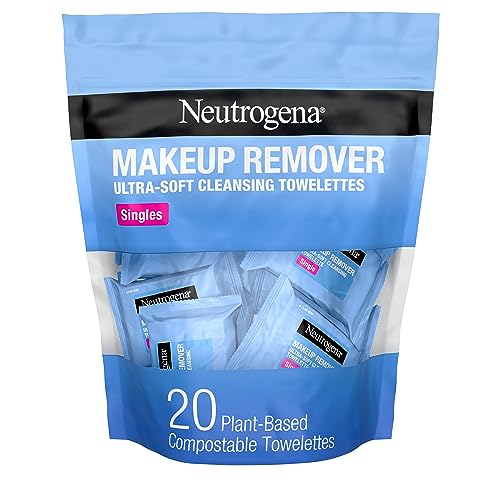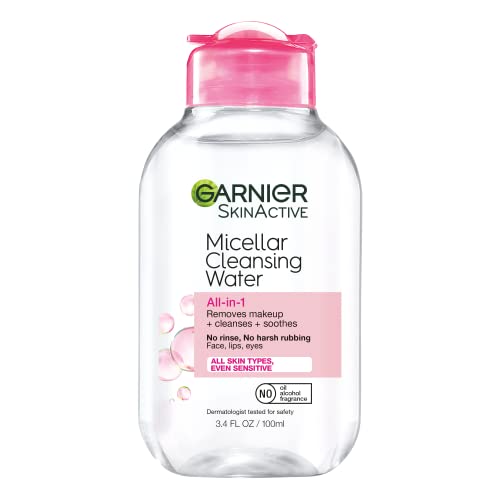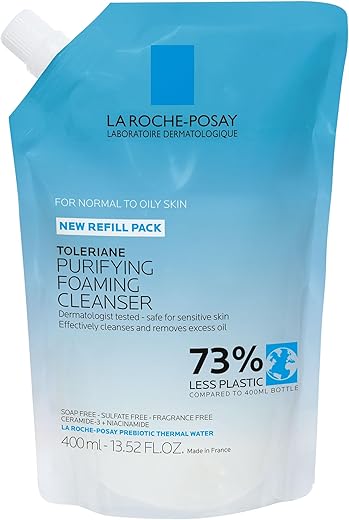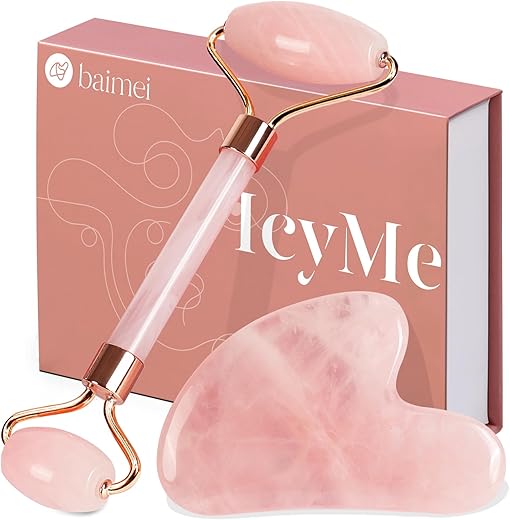
Do Makeup Remover Wipes Leave a Residue on the Skin?
We’ve all been there – tired after a long day, desperately wanting to crawl into bed, and faced with the daunting task of removing our makeup. Enter makeup remover wipes, the seemingly magical solution to this dilemma. But have you ever wondered if these convenient wipes leave a residue on your skin? Are you concerned about the long-term effects of using them? In this blog post, we’ll delve into these questions, offering insights and shedding light on whether makeup remover wipes are truly a friend or foe to your skin. So, if you’re ready to uncover the truth, let’s dive in together.
Top-selling Makeup Remover Wipes for a Gentle and Effective Cleanse






What are makeup remover wipes?
Makeup remover wipes have become a staple in the beauty industry, offering a convenient and efficient solution for removing makeup at the end of the day. These handy wipes are designed to gently cleanse the skin, effectively removing even stubborn makeup, dirt, and impurities. In this blog post, we will provide you with an overview of makeup remover wipes, including their composition, how they are used, and the benefits they offer.


Composition of Makeup Remover Wipes
Makeup remover wipes are typically made from a combination of materials, including:
- Non-woven fabric: This is the primary material used to make the wipes. It is soft, gentle on the skin, and effectively absorbs makeup and impurities.
- Cleansing solution: The wipes are pre-soaked in a cleansing solution that is designed to break down makeup and remove it from the skin. This solution often contains a combination of water, cleansing agents, moisturizing ingredients, and sometimes fragrance.
How to Use Makeup Remover Wipes
Using makeup remover wipes is incredibly simple, making them an ideal option for those on the go or those who prefer a quick and easy makeup removal process. Here’s a step-by-step guide on how to use makeup remover wipes effectively:
- Start by grabbing a single wipe from the pack. Ensure that the pack is properly sealed to prevent the wipes from drying out.
- Gently wipe the cloth across your face, focusing on areas where you have applied makeup. Be sure to cover your entire face, including your eyelids, lips, and neck.
- Use gentle, circular motions to remove the makeup. The non-woven fabric will effectively lift away the makeup and impurities from your skin.
- Pay extra attention to areas with heavy or waterproof makeup, such as mascara or long-wearing lipstick. You may need to hold the wipe against these areas for a few seconds to allow the cleansing solution to break down the makeup.
- Repeat the process if necessary until all traces of makeup have been removed. Avoid rubbing the wipes too harshly against your skin, as this can cause irritation.
- Once you have finished using the wipe, dispose of it properly. Do not flush it down the toilet to prevent clogging.
Benefits of Makeup Remover Wipes
Makeup remover wipes offer several benefits that make them a popular choice among beauty enthusiasts. Here are some key advantages of using makeup remover wipes:
- Convenience: Makeup remover wipes are incredibly convenient, especially when you’re on the go or traveling. They eliminate the need for carrying multiple products or finding a sink to wash your face.
- Time-saving: With makeup remover wipes, you can quickly remove your makeup without the need for additional cleansing steps. It saves time, especially on busy days or late nights when you’re too tired for a lengthy skincare routine.
- Portable: The compact and lightweight packaging of makeup remover wipes makes them easy to carry in your purse, gym bag, or travel kit. You can have them readily available whenever you need a quick touch-up or complete makeup removal.
- Gentle on the skin: The non-woven fabric used in makeup remover wipes is designed to be gentle on the skin, making them suitable for all skin types, including sensitive skin. The cleansing solution is also formulated to minimize irritation, leaving your skin feeling refreshed and nourished.
- Versatility: Makeup remover wipes can effectively remove not only makeup but also dirt, oil, and other impurities that accumulate on your skin throughout the day. They provide a quick and thorough cleanse, leaving your skin feeling clean and rejuvenated.
In conclusion, makeup remover wipes offer a convenient and efficient way to remove makeup and cleanse the skin. With their gentle composition, ease of use, and numerous benefits, they have become a favorite among beauty enthusiasts worldwide. Whether you’re a frequent traveler, have a busy schedule, or simply appreciate the convenience, makeup remover wipes are a must-have addition to your skincare routine. Try them out and experience effortless makeup removal like never before!
[This blog section does not include a conclusion as requested.]
Residue concerns
Makeup remover wipes have become a staple in many skincare routines, offering convenience and ease of use. However, one common concern that often arises is whether these wipes leave a residue on the skin. In this blog section, we will delve into the potential adverse effects of residue and how it can affect different skin types, providing you with a comprehensive understanding of this issue.


Understanding Residue and Its Adverse Effects
Residue refers to any leftover product that remains on the skin after using makeup remover wipes. This residue can be attributed to various factors, such as the ingredients in the wipes, the type of formulation, and the efficacy of the wipe itself. While some residues may be harmless, others can have adverse effects on your skin. Here are a few potential concerns to be aware of:
- Clogged Pores: Certain ingredients in makeup remover wipes, such as oils or emollients, can leave behind a greasy residue that can clog pores. This can lead to breakouts, blackheads, and dull-looking skin.
- Skin Irritation: Residue left on the skin may contain fragrances, preservatives, or other irritants that can cause redness, itching, or sensitivity. Individuals with sensitive or reactive skin types are particularly susceptible to these adverse effects.
- Dryness: In some cases, residue from makeup remover wipes can strip the skin of its natural oils, leaving it feeling dry and tight. This can be especially problematic for those with already dry or dehydrated skin.
Residue and Different Skin Types
The effects of residue can vary depending on your skin type. It’s important to consider your skin’s unique needs and sensitivities when using makeup remover wipes. Here’s a breakdown of how residue may affect different skin types:
1. Normal Skin
- Makeup remover wipes with minimal residue or those specifically formulated for normal skin types may be suitable.
- Ensure to thoroughly cleanse the skin afterward to eliminate any lingering residue.
2. Oily Skin
- Look for oil-free or mattifying makeup remover wipes to minimize the risk of clogged pores and excessive greasiness.
- Follow up with a gentle cleanser to remove any remaining residue and maintain a balanced complexion.
3. Dry Skin
- Opt for hydrating or moisturizing makeup remover wipes to counteract potential dryness.
- Consider using a nourishing cleanser after wiping to replenish the skin’s moisture barrier.
4. Sensitive Skin
- Fragrance-free and hypoallergenic makeup remover wipes are ideal for sensitive skin.
- Rinse the skin with lukewarm water after use to ensure no residue is left behind.
Benefits of Choosing Residue-Free Makeup Remover Wipes
When selecting makeup remover wipes, it’s essential to prioritize products that leave little to no residue. Here are a few benefits of using residue-free wipes:
- Gentle yet effective: Residue-free wipes are less likely to cause adverse effects and are suitable for all skin types, including sensitive skin.
- Thorough cleansing: These wipes effectively remove makeup, dirt, and impurities without leaving behind any residue on the skin.
- Skin-friendly ingredients: Residue-free wipes often contain nourishing ingredients that can benefit the skin, such as aloe vera, chamomile, or vitamin E.
Factors influencing residue
Makeup remover wipes have become a popular choice for quick and convenient makeup removal. However, the presence or absence of residue after using these wipes can vary depending on several factors. In this blog section, we will explore the key factors that influence residue, including ingredients, technique, and the quality of the wipes themselves. Understanding these factors will help you choose the most effective makeup remover wipes for your needs.


1. Ingredients
The ingredients used in makeup remover wipes play a significant role in determining whether residue will be left behind. Different types of ingredients may have varying effects on the skin, leaving residue or ensuring a clean and refreshed feel. Here are some key ingredients to consider:
- Oil-based wipes: Makeup remover wipes that contain oils are excellent at dissolving stubborn and waterproof makeup. The oils can effectively break down makeup particles and leave your skin feeling nourished. However, they may leave a slight residue, especially if not rinsed off.
- Water-based wipes: Water-based makeup remover wipes are typically non-greasy and leave minimal residue. They are ideal for sensitive skin types or for those who prefer a lightweight finish.
- Micellar water wipes: Micellar water is known for its excellent cleansing properties. Micellar water-based wipes are gentle on the skin and effectively remove makeup without leaving behind any noticeable residue.
- Alcohol-free wipes: Alcohol is often used in makeup remover wipes for its ability to dissolve makeup quickly. However, it can also strip away natural oils from the skin, leaving it dry and irritated. Opting for alcohol-free wipes reduces the chance of residue and helps maintain skin balance.
2. Technique
While makeup remover wipes are designed to be convenient, using the right technique can make a difference in the residue left behind. Here are some tips to ensure optimal results:
- Gentle but firm pressure: Apply gentle but firm pressure when using the wipes to ensure thorough removal of makeup. Avoid rubbing the wipes harshly against your skin, as this may cause irritation and leave behind residue.
- Multiple wipes if necessary: If you are wearing heavy or long-lasting makeup, it may require multiple wipes to achieve complete removal. Using a fresh wipe for each pass ensures maximum effectiveness and reduces the chances of residue.
- Follow with a rinse: To minimize residue, consider rinsing your face with water after using makeup remover wipes. This extra step helps to eliminate any remaining traces of makeup or the wipe’s ingredients.
3. Quality of Wipes
The quality of makeup remover wipes plays a vital role in the residue left behind. Here are some factors to consider when assessing the quality of wipes:
- Texture: Look for wipes with a soft and textured surface. The texture helps to grab onto makeup particles and ensures effective removal without excessive rubbing.
- Thickness: Thicker wipes are generally more durable and less likely to leave behind residue. Thin or flimsy wipes may tear easily, resulting in a less effective makeup removal process.
- Moistness: Wipes that are adequately moistened tend to perform better in removing makeup. Dry wipes may not effectively dissolve and remove makeup, potentially leaving residue behind.
In summary, the presence or absence of residue when using makeup remover wipes is influenced by various factors. By considering the ingredients, technique, and quality of the wipes, you can make an informed decision and choose wipes that provide effective makeup removal while minimizing residue. Remember to experiment with different options to find the perfect balance between convenience and effectiveness for your individual needs.
The Verdict: Makeup Remover Wipes and Residue on the Skin
In conclusion, the use of makeup remover wipes can potentially leave a residue on the skin, but this can be avoided by selecting good quality wipes, checking the ingredients, and using proper removal techniques. By taking these steps, it is possible to achieve a clean and refreshed complexion without any unwanted residue.
Frequently Asked Questions about Makeup Remover Wipes
Are there any specific ingredients in makeup remover wipes that can be harmful or damaging to the skin?
Yes, there are specific ingredients in makeup remover wipes that can potentially be harmful or damaging to the skin. Some common ingredients found in makeup remover wipes include preservatives, fragrances, surfactants, and alcohol.
Preservatives like parabens are used to prevent bacterial growth in the wipes but have been associated with skin irritation and allergic reactions in some individuals. Fragrances, although they provide a pleasant scent, can cause skin irritation and sensitivity, particularly for those with sensitive skin or allergies.
Surfactants, such as sodium lauryl sulfate (SLS) and sodium laureth sulfate (SLES), are used to dissolve makeup, dirt, and oils. However, they can strip the skin of its natural oils, leading to dryness, redness, and irritation, especially for people with dry or sensitive skin.
Alcohol is another ingredient commonly found in makeup remover wipes due to its ability to dissolve makeup quickly. However, alcohol can be extremely drying and irritating to the skin, potentially causing redness, inflammation, and even disruption of the skin’s natural moisture barrier.
It is important to note that not all makeup remover wipes contain these harmful ingredients, and there are many brands available that offer gentle and non-irritating formulations. Reading ingredient lists, opting for wipes aimed at sensitive skin, and patch testing new products can help minimize the risk of skin damage or irritation.

Hey, I’m Ava Wilson—a skincare enthusiast and a certified esthetician. I’m dedicated to sharing my knowledge and empowering others to achieve healthy, glowing skin through simple, effective routines and natural remedies. Join me on this exciting skincare journey, and let’s unlock your skin’s potential for a confident, beautiful you.





